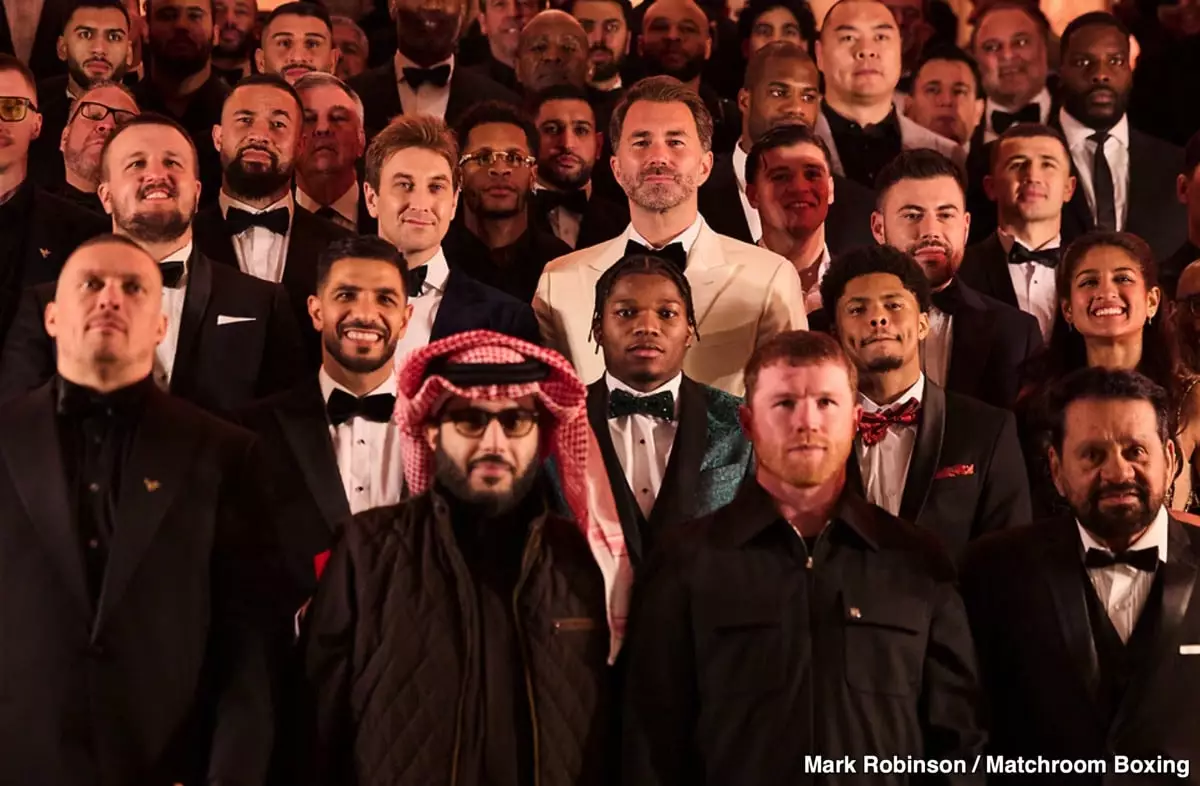In a striking expression of concern, Gervonta “Tank” Davis recently critiqued a photograph of prominent boxers, including himself, Teofimo Lopez, and others, posing with Saudi sports executive Turki Alalshikh. His remarks, which likened the image to “Devil s**t” and suggested that the fighters had “sold their souls,” have ignited discussion among fans and analysts alike. This controversial statement resonates in the boxing community, particularly as it plays into the ongoing narrative surrounding questionable fight decisions in the region.
Davis’s description of the fighters as resembling “cult-like” figures has found receptive ears on social media platforms. Commenters were quick to note the unsettling aesthetics of the photograph: the dim lighting, the formal attire including bow ties, and the overall ambiance evoking a sense of foreboding. Such elements prompted layered interpretations, hinting at deeper implications regarding loyalty and integrity in the sport of boxing.
The debates stirred by Davis’s comments extend beyond mere aesthetics, delving into the underlying tensions that have come to characterize recent fight nights in Riyadh, Saudi Arabia. Earlier controversial judging decisions in bouts like Carlos Adames vs. Hamzah Sheeraz and Artur Beterbiev vs. Dmitry Bivol have tainted the reputation of the boxing scene in the kingdom. Davis’s hesitation to venture into this environment strikes a chord; he is cautioning fellow fighters against participating in what he perceives could be an unsafe and compromised setting.
“I want to fight, but not there”, they echo within his sentiments. Davis’s apprehension reflects a growing sense of unease among fighters regarding the integrity of the sport, particularly as heavy investments pour into boxing from countries veering into the spotlight for a multitude of reasons, not all of which are aligned with the sport’s traditional values.
The imagery and context surrounding the photo shoot call into question the meaning of authenticity in a sport increasingly influenced by money and spectacle. As Davis mentioned, the unsettling nature of the photo lingers with disturbing undertones; the reference to “selling their souls” suggests a broader commentary on how modern athletes may compromise their principles for fame and fortune. The vivid analogy of a cult dynamic is powerful, provoking thoughts about the independence of athletes in an era dominated by corporate interests.
In the throes of this conversation, both the sport and its participants are encountering unique challenges. With every major event in boxing, fans and critics alike are on alert, looking for signs of ethical breaches or conflicts of interest that could mar the sport’s legacy. As the fighters navigate this complex landscape, Davis’s candid observations highlight the need for vigilance in preserving the integrity of boxing in an increasingly commercialized arena.
Gervonta Davis has opened up an essential dialogue through his provocative remarks. The dual themes of integrity and authenticity are coming to light as athletes weigh their personal values against the allure of wealth and fame. The photo, which provoked such strong reactions, serves as a mirror reflecting deeper concerns within the boxing community. As the sporting world evolves, the challenge remains: how can boxers stay true to their principles while engaging in a landscape filled with temptation? Davis’s bold assertions compel both fans and fighters to confront these urgent questions.


Leave a Reply